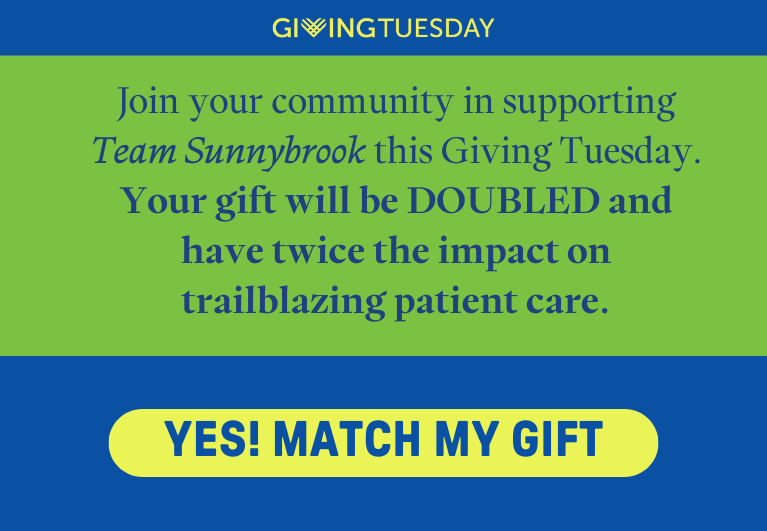The time is now - Ontario needs a colorectal cancer screening program
March is colorectal cancer awareness month
Experts at the Odette Cancer Centre (TSRCC), the comprehensive cancer program at Sunnybrook Health Sciences Centre, would like to see a provincewide colorectal cancer screening program in place.
“For colorectal cancer, screening is the most important and cost-effective means of detecting and treating cancer early,” says Dr. Linda Rabeneck, gastroenterologist and Regional Vice President of the TSRCC. “Evidence shows that the probability of curing colorectal cancer is 90 per cent when it’s detected early. However, without an organized screening program too many patients are being diagnosed with advanced disease.”
In 2005, 3,050 Ontarians died of colorectal cancer and over 7,500 were diagnosed with the disease. Yet, there is no organized approach to colorectal screening. The few men and women who actually do get screened go through an ad-hoc process where a general practitioner happens to mention screening to the patient and he/she then gets it done.
“Ontario has one of the highest rates of colorectal cancer in the world. It is the second leading cause of cancer deaths in the province,” says Rabeneck. “Despite these alarming statistics, Ontario is still lagging in screening for colorectal cancer.”
Less than 10 per cent of Ontario’s at-risk population, men and women aged 50 to 74, has had a fecal occult blood test (FOBT), a proven cost-effective screening method. In contrast, other jurisdictions that have implemented organized FOBT programs for their at-risk populations that have reached participation rates of between 43 per cent (Australia) and 60 per cent (Finland).
A fecal occult blood test is a noninvasive test that detects the presence of hidden (occult) blood in the stool. Hidden blood is often the first warning sign that a person has colorectal cancer.
“If the FOBT test reveals that there is blood in the stool, we will bring the patient in immediately for a colonoscopy,” says Rabeneck. “Without an organized screening tool, we have no way of tracking patients to ensure that they are having regular testing.”
Leonard (Red) Kelly, a star NHL player in the 1950s and 60s is living proof that early detection saves lives. “I was fortunate enough to have my cancer detected early before it took a toll hold on me, and if it hadn’t been detected so early it probably would have spread and wouldn’t have been cured,” says Kelly, who was treated for colorectal cancer at Sunnybrook & Women’s.
The TSRCC has been working closely with Cancer Care Ontario (CCO) to implement a province-wide colorectal cancer screening program. In 2005, CCO completed a government-funded pilot project, which concluded that a province-wide colorectal screening program is needed. The tools and plan are already in place to move a province-wide program forward, but funding is required to develop the infrastructure to monitor the program.
In the meantime, Dr. Rabeneck advises that both men and women who are over the age of 50 and do not have a family history of colorectal cancer, talk to their family doctor about getting screened. If the disease is in the family, men and women should talk to their doctor about getting screened earlier than age 50.








